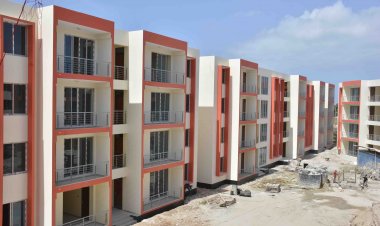Evolution and Growth of Real Estate in Kenya Since Independece
One of the sectors that has experienced noticeable growth since Kenya's independence in 1963 is the real estate industry.

Kenya gained independence from British colonial rule in 1963, and since then, the country has undergone significant social, economic, and political transformations. One of the sectors that has experienced noticeable growth is the real estate industry.
The early years after independence were characterized by rapid urbanization, and the demand for housing and commercial property increased immensely. The government embarked on ambitious housing projects such as the Kenya National Housing Corporation (KNHC) to provide affordable housing to the citizens. However, the demand for housing continued to exceed the supply, leading to a severe housing shortage that persists to date.
In the 1970s and 1980s, the government initiated policies aimed at attracting foreign investment, which led to the establishment of several multinational companies in the country. This resulted in the growth of the commercial real estate sector, with the construction of modern office buildings and shopping malls. The establishment of the United Nations headquarters in Nairobi in 1996 also boosted the demand for commercial property.
In the 1990s, the government introduced economic reforms that led to the liberalization of the economy, which opened up opportunities for private investment in the real estate industry. Private developers started constructing middle to high-end residential properties in the suburbs of Nairobi, Mombasa, and other urban centers.
The turn of the millennium saw the growth of the real estate industry accelerate due to the expansion of the middle class, increased urbanization, and the growth of the economy. The real estate sector became a significant contributor to the country's Gross Domestic Product (GDP), with the construction of high-rise buildings, shopping malls, and gated communities.
In recent years, the government has implemented policies aimed at enhancing the real estate sector's growth, such as the reduction of interest rates and the introduction of tax incentives for developers. The sector has also benefited from the growth of the technology industry, with the establishment of tech hubs and the construction of office buildings to house tech companies.
Despite the growth of the real estate industry, challenges such as inadequate infrastructure, corruption, and the high cost of construction materials continue to hamper its growth. However, the government is taking steps to address these challenges, with the implementation of infrastructure projects and the introduction of policies to curb corruption.
In conclusion, since Kenya's independence, the real estate sector has grown significantly, driven by urbanization, economic growth, and policy reforms. The sector continues to offer opportunities for investment and development, and with the right policies and investments, it has the potential to contribute even more significantly to the country's economic growth.
If you have a real estate press release or any other information that you would like featured on African Real Estate Blog Post do reach out to us via email at [email protected]
































